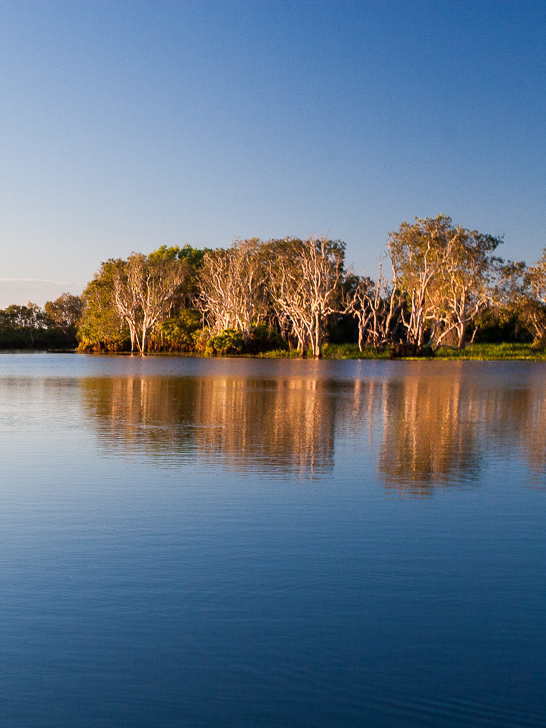Survey spots salty climate risk
 Researchers say rising sea levels could take a big toll on freshwater fish species in Kakadu National Park.
Researchers say rising sea levels could take a big toll on freshwater fish species in Kakadu National Park.
Scientists have just completed a massive survey covering hundreds of species in rivers and wetlands, as part of the National Environmental Research Program.
Associate Professor Mark Kennard from Griffith University says they found that higher sea levels caused by climate change could increase salt levels in low-lying areas of Kakadu.
The increased salt content would likely kill off the plant food that freshwater fish rely on.
“We've identified about 11 fish species that we think are really at high risk of that saltwater intrusion,” Dr Kennard told the ABC this week.
“They are things like the northern saratoga, which is a recreationally important angling species people might have heard of, as well as a lot of smaller-bodied fish that are inconspicuous but really important parts of the food web.”
While Kakadu National Park covers just 1 per cent of the total area of northern Australia, a third of all freshwater fish species recorded in the region live within the park.
“Over the next century, climate change will cause sea level rise and more extreme high tides, which will bring salt water from the ocean into lower lying freshwater wetlands killing plants that the fish rely on,” Dr Kennard said.
Species that cannot tolerate saltier water are at the greatest risk.
Some ecologically important species like the pennyfish, poreless gudgeon, blue-eyes and black-banded rainbowfish are at risk too.
Dr Kennard has presented the findings of the survey at a seminar for park managers, Traditional Owners and the general public during research seminars in Kakadu National Park and Darwin.








 Print
Print